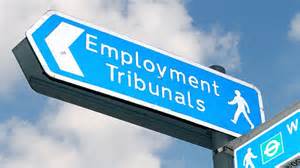
For most people, submitting a claim to an Employment Tribunal is a stressful experience. This might be because you don’t know how the Tribunal procedure works.
Read on to discover the major stages you can expect to go through. Hopefully, you will then be more prepared… and less stressed.
Are you entitled to make a claim?
First, ascertain whether or not you’re entitled to make a claim.
In most cases, you need at least one year’s continuous service as an employee (Northern Ireland) or two years (England, Scotland & Wales) – this is called the ‘qualifying period’.
Also, you should be an employee or a worker, not self-employed. You can check out the definitions in our blog post: Are you an employee, worker or self-employed?
Not sure? Give us a call on 0808 168 7288 and we’ll advise you whether you qualify.
Before you make a claim
In most cases, before you submit a claim to the Employment Tribunal, you should go through early conciliation via Acas. They are a government-funded body intended to help with workplace disputes.
Afterwards, you’ll get an early conciliation certificate which you’ll need if things continue.
As employment lawyers, we can help you prepare for this stage, as well as throughout the Tribunal process.
1. Submitting a claim
The first step is to complete form ET1. This details the names and addresses of the parties, the type of claim you are bringing, and the reasons you are making the claim.
The ET1 is the form on which the legal and factual basis of the case will be founded. As such, it is a crucial document that will be used throughout the course of the case.
- If there’s more than one employee claiming for the same thing at the same time, all the names can go on the same claim form, using form ET1A. That might apply if you’re all being made redundant by the same employer in the same circumstances.
- You can claim against more than one company. This might happen if you’re an agency worker who’s been discriminated against, and you want to name the employer and the agency who placed you there.
- If you’re making a discrimination claim, it can be against an individual or the company or both.
In most cases, you must submit your claim to the Employment Tribunal within three months less one day after the event that prompted you to take action.
For example, if you were dismissed on 1 January 2023 and you want to make a claim for unfair dismissal, the claim needs to be issued by 31 March 2023 at the latest.
Of course, there’s an exception to this rule. If you’re claiming statutory redundancy pay or equal pay, the deadline is six months less one day.
The time limit will usually be altered depending on the date the Early Conciliation Certificate was issued. The rules around this are very complicated, so it is recommended that you seek legal advice if you are unclear on the date of issue.
It is always better to be cautious too. The earlier the claim is issued, the better.
Scroll down to read more…
“Professional and efficient service with helpful and friendly staff.” Susan R
Filling in the ET1
The ET1 claim form comprises 15 questions. It’s important for you to:
- Quote the number on your Acas early conciliation certificate
- Explain your complaint clearly, including what legal right you’re claiming
- Include details of all relevant events. Stick to the facts. Keep emotion out of it
- Don’t miss out anything important, but don’t go into too much detail at this stage. You’ll get the chance to share all the evidence you’ve collected later
- Make it easy to read by typing or neat handwriting
- Have numbered paragraphs as that makes it easier to refer to
- Consider what you want (although you don’t need to write that down)
- Add our contact details (assuming you’ve hired us to help you)
- Add any extra information such as help you may need due to a disability, your hospital or holiday dates, and the due date if you’re pregnant
You’ll also need to include your employer’s contact details (these should match the details on the ACAS/LRA early conciliation certificate). You can find them on your payslip, contract or P45, and you can check their full name at Companies House.
If you want, you can ask the Tribunal to blank out your address when they pass the form on to your employer. This is reassuring, for example, if you’re claiming for sexual harassment.
You can then lodge your claim via the Tribunal website or by post. It is best to submit it via the website as you will receive an email confirming the claim has been submitted.
It’s important to fill in the ET1 correctly otherwise it will be rejected. Don’t worry. We can help prepare the form in liaison with you, and submit it on your behalf.
2. Defending a Claim
Once the ET1 is received at the Employment Tribunal, they will review it to ensure that all necessary information has been included. Provided there are no problems, they will send the ET1 to your employer for them to prepare their defence.
Your employer has 28 days from the date they receive the ET1 in which to provide a defence. They can ask for more time if they need it. If they don’t submit a defence, or they submit it too late, their defence might not be accepted. In that case, you, the claimant, would receive a “Default Judgement”. This means your claim is automatically successful because your employer failed to provide a defence in time.
Your employer’s response is called the ET3, and they are known as the ‘respondent’ from now on. You’re known as the ‘claimant’.
In practice, it is extremely rare for the employer not to provide a defence or to fall foul of a default judgement. It is more likely that, if they are struggling to comply with the 28-day time limit, they will ask for extra time in which to lodge their defence. Unlike with lodging a claim, the Employment Tribunal is usually very lenient with respondents who lodge late responses.
Generally, you can expect to receive their defence around six weeks from the date the ET1 is submitted.
3. Case Management Orders
The next step is usually an interim hearing where both parties attend the Tribunal. An Employment Judge will discuss how to progress the case to the final hearing where liability will be decided.
These hearings are increasingly being held by phone, although this depends on the complexity of the issues and the costs associated with both parties travelling to the Tribunal.
Either way, the Tribunal will then make orders for the exchange of disclosure and witness statements.
Scroll down to read more…
“Paul Doran Law has been extremely helpful and supportive in very difficult circumstances. I would highly recommend them as professionals to others and have a lot of faith in their advice.” David R
4. Disclosure
At disclosure stage, you and your employer exchange all information that’s relevant to the matter.
Both parties are obliged to disclose ALL relevant information, if the information is in an accessible format and in their possession or control. So the exchange will probably involve documents which both help and harm your case.
The obligation for each party to disclose anything relevant continues throughout the duration of the claim. This means that, even after the date of disclosure, if either party becomes aware of relevant information in their possession and control, it MUST be disclosed.
5. Witness Statements
Witness statements must be produced for all witnesses who are called upon to give evidence for or against one of the parties.
In most cases, anyone who can support your version of events will be asked to a produce a witness statement.
Similarly, your employer will call as many witnesses as they feel appropriate to help them defend the claim.
You and your employer may also decide to call expert witnesses – these are generally engaged to provide expert opinion on a specific issue, such as whether a person is disabled or not.
The statements are written documents signed by each witness and give a full account of their version of events. The statements should be in the witnesses’ own words and are usually drafted with the help of their legal representatives.
 About us: At Paul Doran Law, we specialise in employment law – this includes settlement and severance matters as well as claims about equal pay, discrimination, unfair or constructive dismissal, and unpaid wages or holiday pay.
About us: At Paul Doran Law, we specialise in employment law – this includes settlement and severance matters as well as claims about equal pay, discrimination, unfair or constructive dismissal, and unpaid wages or holiday pay.
We’re on your side: We only act for employees who find themselves in a dispute with their employers.
About you: Whether you work for a multi-national corporation, public sector, private sector or small employer, we can help. We act for clients in Northern Ireland, England, Wales and Scotland.
Easy payment options: You’ll have a choice of ways to fund your claim, including no-win, no-fee. Often, your employer will pay our fee.
What next: Give us a call today for friendly, clear and honest advice about your case. The initial consultation is FREE and with no obligation.
“Very happy with all aspects of my experience from initial contact to finish.” Andrew B
6. Evidence in Chief
In an effort to save time, the Tribunal will usually read the witness statements before the start of the hearing. In some cases, the Tribunal may ask that the witness attends to read their statement aloud.
If you are giving evidence, you will be called to the witness table when it is your turn. You will be sworn in or, if you are not religious, asked to affirm. (The Tribunal clerk will ask you for your preference on this point before the hearing begins.) You then sit down. Initially, you will be asked to give your name for the record.
While you are giving evidence, a copy of any documents the parties are relying on will be in front of you on the table so you can refer to them. Generally, the legal representatives will refer you to documents outlined in your statement or ask some additional questions based on the content of your statement. The Employment Judge may also ask you questions based on what they have read.
Whether you are asked a question by your representative or the Employment Judge, you should direct your answers to the Employment Judge. Your witness statement together with your answers to these questions forms your ‘evidence in chief’.
Scroll down to read more…
7. Cross-examination
 After you have given your evidence in chief, the other party will also ask you questions. This is known as ‘cross-examination’.
After you have given your evidence in chief, the other party will also ask you questions. This is known as ‘cross-examination’.
It is the job of your employer or their representative to try and get you to agree with their version of events. Just answer truthfully. Your representative will object to any improper questions. Apart from this, you cannot ask for assistance in answering a question, and you can’t discuss it with anyone else.Need help?
For a free initial review of your claim, call 0808 168 7288, email enquiries@pauldoranlaw.com, or fill in the contact form (top right).
8. Re-examination
After you have been cross-examined, your representative may wish to ask you a few more questions to clarify any issues that have come out of cross-examination, or which have been given the wrong ‘spin’ as a result of the cross-examination.
The Employment Judge or their colleagues may also ask you questions at any time, although these are usually saved until the end.
9. General points on giving evidence
The prospect of giving evidence may seem a little daunting and it may seem as if you are under examination and being subjected to a memory test.
This is not the case.
The simple rule is to give a truthful answer rather than try to get the ‘right’ answer.
It is quite proper to say that you “don’t know” or “can’t remember” the answer to something if that is the truth. You can also ask the questioner to rephrase an unclear question, or to look at a document to refresh your memory before answering.
How to address the Employment Judge
You should address the Employment Judge as “Judge”. (It was “Sir/Madam” until recently.) They will be taking a note of the evidence and will sometimes read their notes back to you and ask whether you agree that it’s correct.
What happens during breaks
If the Tribunal adjourns for a break or lunch while you are giving evidence, you are not allowed to speak to any of the other witnesses or to your representative. In fact, you are not allowed to talk to anybody about the case until you have finished giving evidence and are no longer under oath. If you are in this position, the Employment Judge will most likely remind you of this.
Scroll down to read more…
“Well-informed and easy to contact. I wouldn’t have won my case without him.” Audrey S
10. The Hearing
Depending on the type of case, the hearing may only last a few hours in a straightforward unpaid wages claim or it may go on for a few days in a complicated discrimination cases. Most unfair dismissal claims last for a day.
This hearing is usually heard in front of a panel. This comprises the Employment Judge and two members, one usually from a business background and another from a trade union background. Both panel members are there to be impartial and help the Judge decide the case on its merits.
Once all witness evidence has been heard, the parties’ legal representatives may make closing submissions. This entails a summary of the case from each party’s perspective and a final opportunity to sway the panel to decide in their favour.
In terms of judgment, the panel may be able to provide their decision on the same day as the final hearing, however this depends on the complexity of the case. It is more likely the panel will adjourn to discuss the matter fully and a written decision will follow several weeks later.
11. Remedy
 If you are successful in pursuing a claim, you must be in a position to tell the panel what form of remedy you’d like.
If you are successful in pursuing a claim, you must be in a position to tell the panel what form of remedy you’d like.
The normal remedy is compensation for financial loss. The method of calculating financial loss is different depending on the type of case. If you are seeking compensation, this must be detailed in a “Schedule of Loss” showing all elements of loss you are claiming for, and how the figures were calculated.
It is helpful if both parties can agree the schedule of loss before the final hearing, however this is not always the case. The panel will review the schedule of loss if they find in your favour, however the amount of any award is at the discretion of the panel.
What this means to you
So there you are. That’s the usual process in a nutshell, and you now have a clue what to expect. In practice, we will help you every step of the way, so there’s no need to be concerned.
Remember, we have plenty of experience because we only act for employees in disputes with their employer, and we have a strong record of success.
If you feel mistreated by your employer, please give us a call, and we’ll explain how we can help and your chances of winning.
It might be easier and less stressful than you think!
“I found all the staff to be knowledgeable and highly professional.” Stephanie W
Need help?
For a free initial review of your case, call 0808 168 7288 or complete a Free Online Enquiry.
We have already helped thousands of people to win millions of pounds in compensation.
You have a choice of ways to pay, including ‘no win, no fee’.


